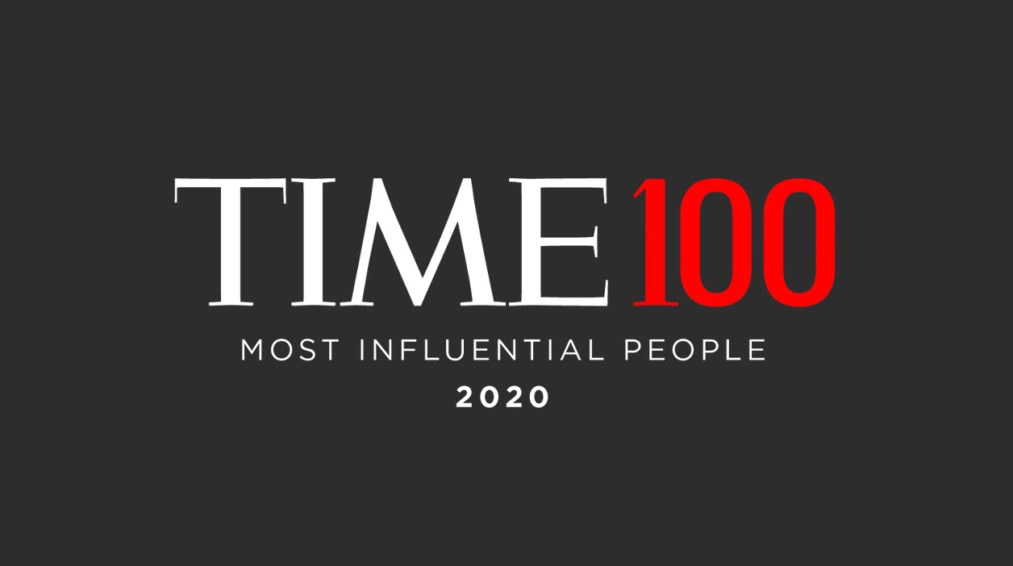Just like everything else in 2020, this year’s edition of the TIME 100: The World’s Most Influential People tradition looks a little different. In place of the annual gala, the magazine partnered with ABC for its debut live broadcast special on September 22nd, just ahead of the magazine hitting shelves on September 25th. Following suit of many concerts, conferences, and other events that were interrupted by COVID-19 restrictions, TIME took the celebration completely virtual, streaming everyone who participated from their homes around the world.
If you tuned in on Tuesday night, you might have noticed some relevant themes that remained prevalent throughout the course of the special, particularly the power of influence and adapting to the “new normal”. Read on to explore what it means to be an influencer in the digital age.
Emphasizing the Social in Social Media
While traditional media like television and radio served solely as platforms for broadcasting to the masses, social media has revolutionized not only how we consume information, but what we do with it. Allowing for consumer feedback and engagement, this shift in digital communications has opened a two-way conversation and presented the perfect opportunity for cultivating more meaningful relationships between a brand and its audience.
“The TIME 100 has always been a mirror of the world and those who shape it,” TIME wrote in an official statement. “While you will certainly find people who wield traditional power on this year’s list—heads of state, CEOs, major entertainers—it also includes many extraordinary, lesser-known individuals who seized the moment to save lives, build a movement, lift the spirit, repair the world.”
A shining example of a TIME 100 influencer who found their audience via social media is Arussi Unda, a feminist from Mexico who spearheaded a national women’s strike on March 9th, 2020. When Unda proposed her idea, the movement spread like rapid fire through social media, and her obscure 15-member feminist collective Brujas del Mar suddenly captured the attention of the nation. Millions of women stayed home from work and school, coming together to bring awareness and protest gender-fueled violence, aka “femicide”.
The Impact of Digital Influence
Unda’s story is just one of many whose influence was propagated by the power of social media, from the founders of the movement that swept the globe, Black Lives Matter, to the 17-year-old internet personality with over 10 million YouTube subscribers, JoJo Siwa. As they always say, however, with great power comes great responsibility.
British royalty Prince Harry and Meghan Markle took the opportunity to warn us about the risks and complications that come with digital influence. “What we’re exposed to online seeps into how we engage each other offline. It can train us to be kind, or it can train us to be cruel,” warned the Duchess. Harry elaborates, “When the bad outweighs the good, for many, whether we realize it or not, it erodes our ability to have compassion.” Michael B Jordan also chimed in on the matter, offering a more positive outlook. “This generation inspires me,” stated the Black Panther actor and social advocate. “Even throughout the pandemic, they’re still finding ways to connect and come together as one.”
What does this mean for us? It means it’s time to jump on board with the times, because they are a changin’. In a society that’s on a trajectory to becoming more and more connected in the cloud, fast-tracked by the ramifications of the global pandemic, digital marketing is more essential than ever. To fully harness the power of digital presence, it’s crucial to not only be timely, but also strategic and conscious of the impact your influence is capable of.
The Power of Storytelling
Equipped with a message, backed by your values and intuition, and the platform to do it, you’re ready to hit “post”- hold that thought! We’re sure you’ve given your brainchild a double-check, triple-check, even, dissecting for any pesky grammar oversight. There’s one thing our trusty spell check won’t ask us, however: What is the story?
Tell, don’t sell. If you pay attention, you’ll notice almost all persuasive messages tell a story, whether it’s a rags-to-riches tale of an entrepreneur, the humble beginnings of a national movement, or a simple testimonial from a satisfied customer – it is our shared humanity that hooks us in. Stories are the thread that hold us together, and there are storytellers in all of us.
Ready to tell your brand’s story? Send us an email or give us a call at 215.609.43215.

